
Find Help
More Items From Ergsy search
-

How does insolvency impact pension funds?
Relevance: 100%
-
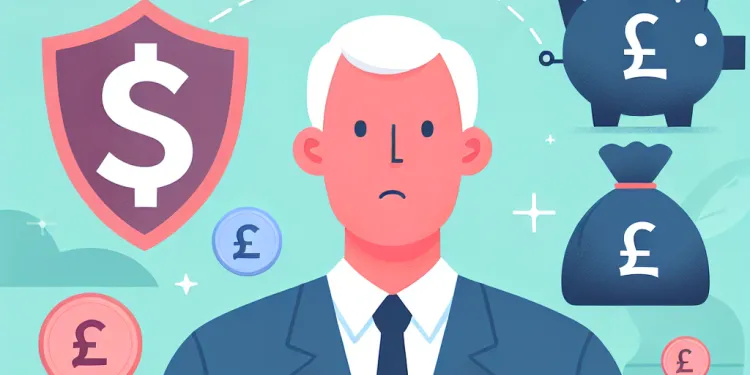
What is the Pension Protection Fund?
Relevance: 74%
-

Why do pension funds go bust?
Relevance: 60%
-

What can pension fund members do if their fund is at risk of failing?
Relevance: 55%
-
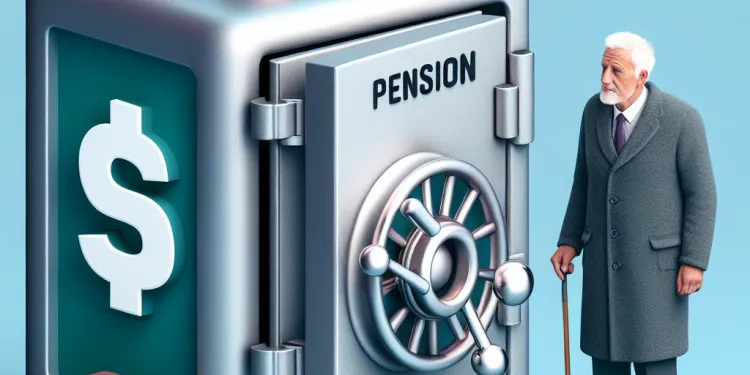
Can pensioners lose all their money if a pension provider fails?
Relevance: 55%
-

Can I get pension advice directly from pension fund providers?
Relevance: 50%
-

What role does government regulation play in protecting pensions?
Relevance: 50%
-
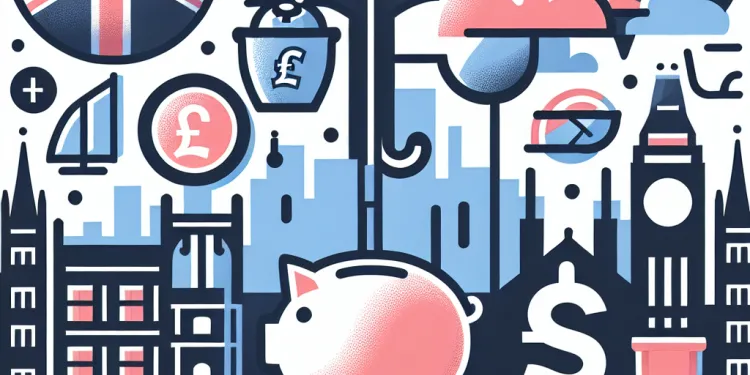
Are defined contribution pensions protected if the provider goes bust?
Relevance: 49%
-
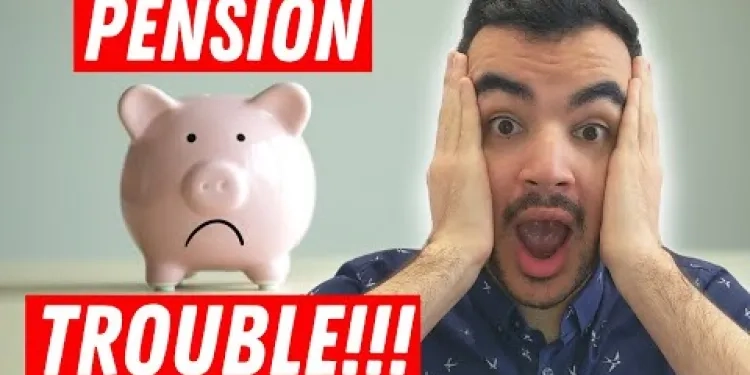
What Happens When Pensions Go Bust! | Pension System Collapse UK
Relevance: 48%
-
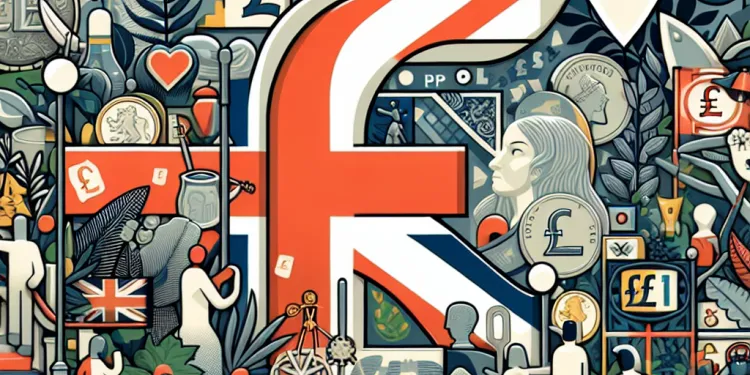
Who is eligible for compensation from the PPF?
Relevance: 45%
-
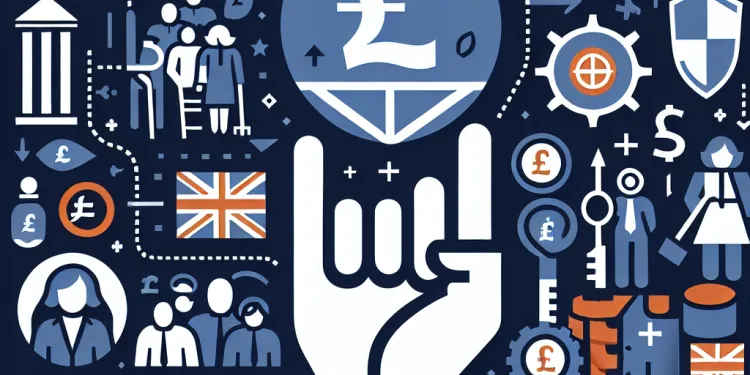
Can pension scheme members influence how their pension is managed?
Relevance: 38%
-
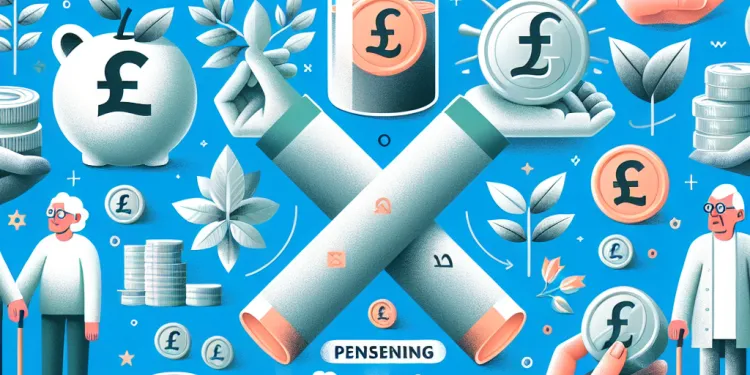
What is the impact on pensioners if a pension system collapses?
Relevance: 34%
-

Do firefighters have to contribute to their pension schemes?
Relevance: 34%
-
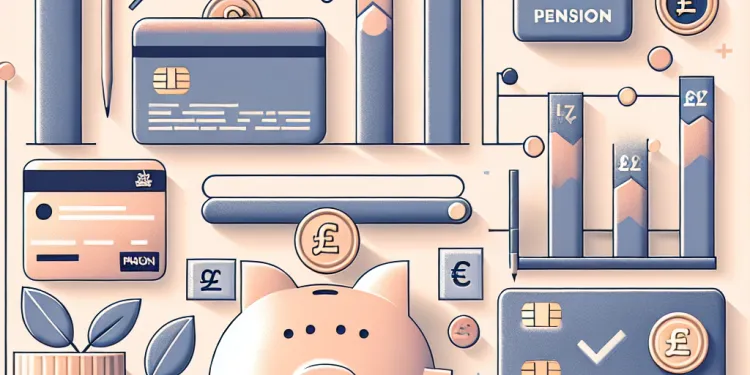
What is a defined contribution pension scheme?
Relevance: 34%
-
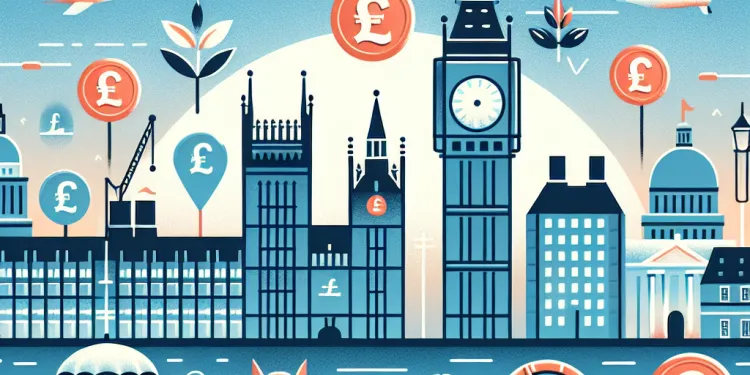
What is a defined benefit pension scheme?
Relevance: 33%
-

Where can I get reliable pensions advice?
Relevance: 32%
-
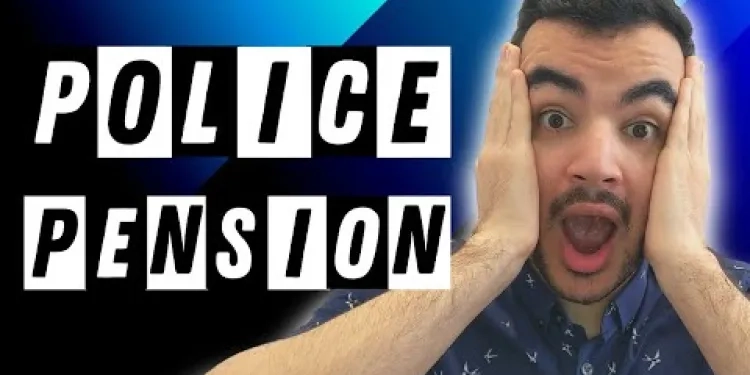
Police Pension Explained
Relevance: 31%
-

Pension UK | SIPPs Explained | Who Are The Best Providers
Relevance: 31%
-

Are firefighter pension benefits taxable?
Relevance: 30%
-

Are government pension advisory services trustworthy?
Relevance: 30%
-
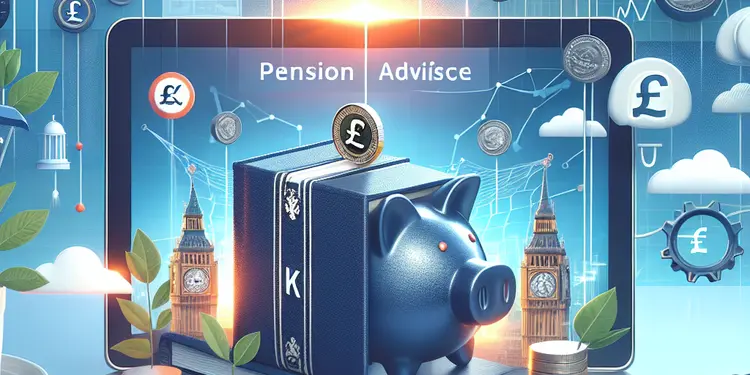
Is the Pension Wise service reliable for pension advice?
Relevance: 30%
-
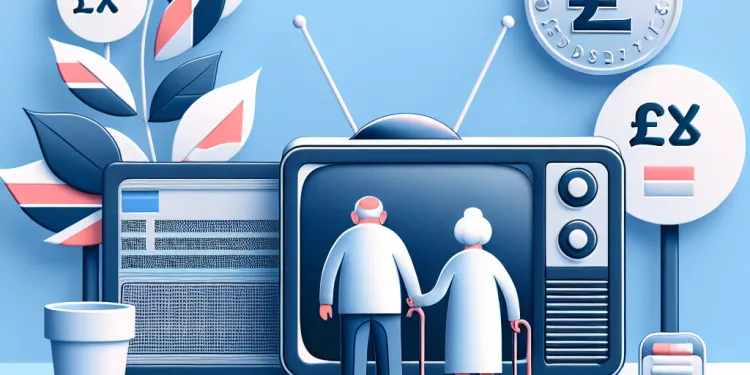
Do pensioners get a free TV license?
Relevance: 29%
-

When will the state pension age increase to 67?
Relevance: 29%
-
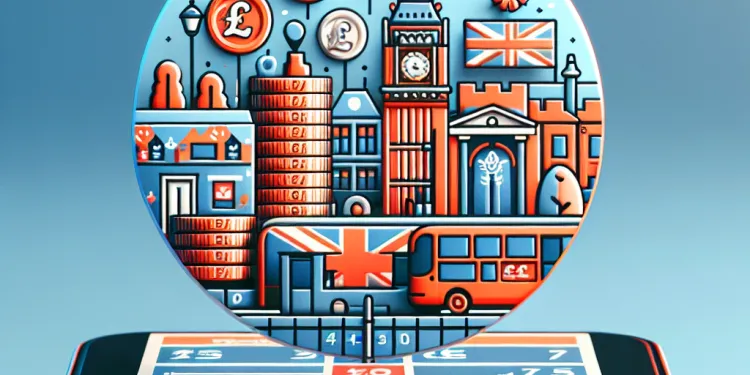
How are Postcode Lottery funds allocated?
Relevance: 29%
-

What if the estate does not have enough assets to pay all tax debts?
Relevance: 29%
-
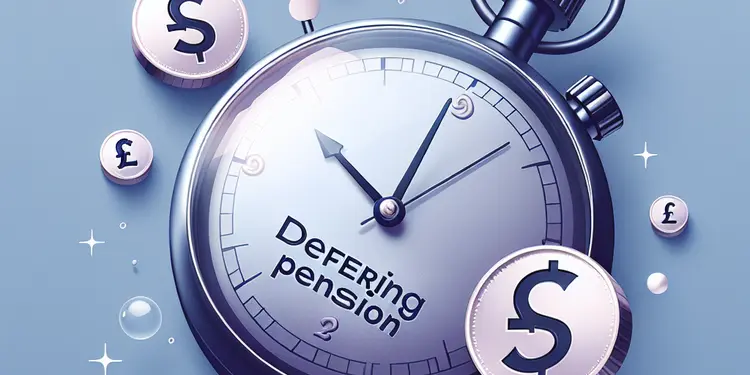
Can I defer my basic State Pension?
Relevance: 28%
-
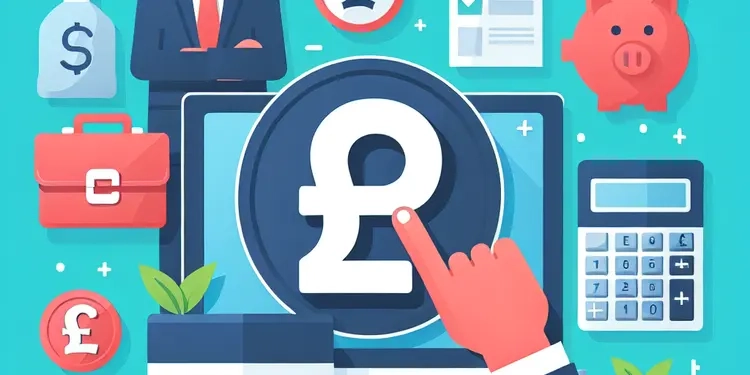
What is the basic pension in the UK?
Relevance: 28%
-
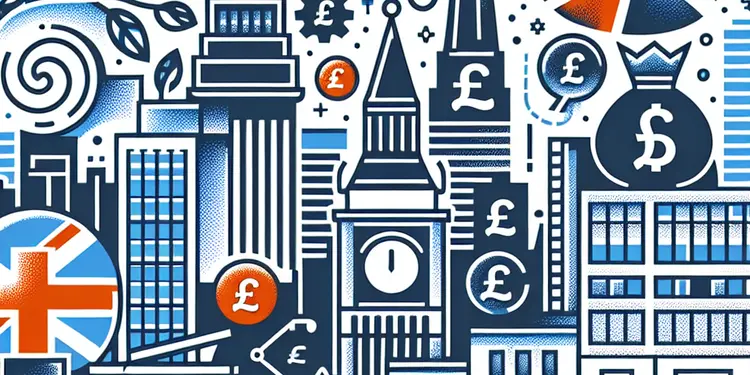
Is there a difference between the basic State Pension and the new State Pension?
Relevance: 28%
-

Will pension contribution allowances be affected in 2026?
Relevance: 28%
-

Pension rights for Firefighters in the UK
Relevance: 28%
-

NHS Pensions | All you need to know
Relevance: 28%
-
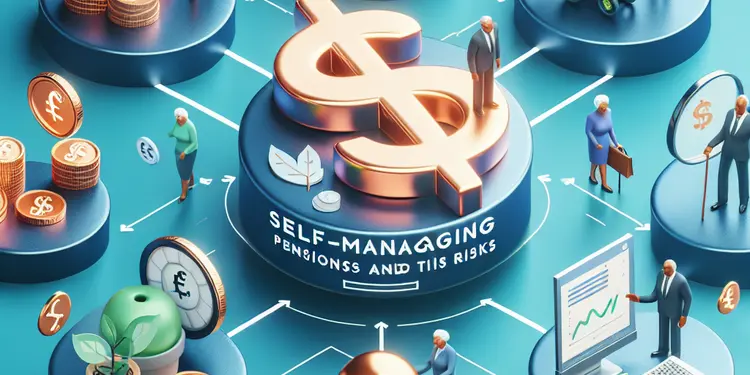
What are the risks of self-managing my pension without advice?
Relevance: 28%
-
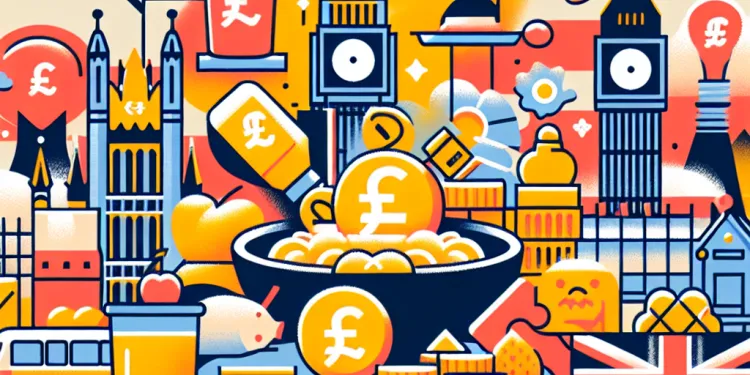
Who provides the funding for free school meals in the UK?
Relevance: 28%
-
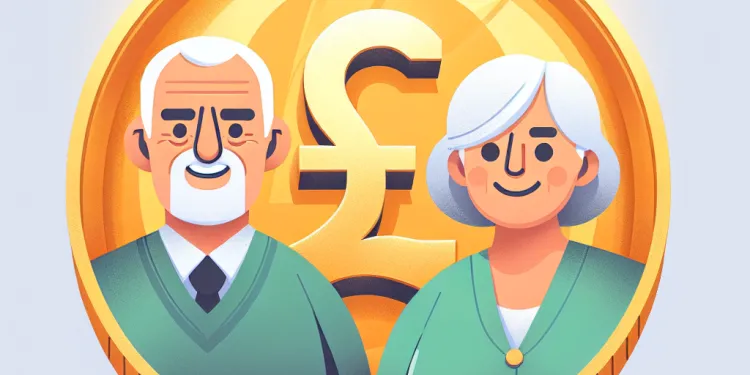
Are pensioners eligible for the £500 cost of living payment?
Relevance: 28%
-

How do funding and resources affect SEND support?
Relevance: 28%
-
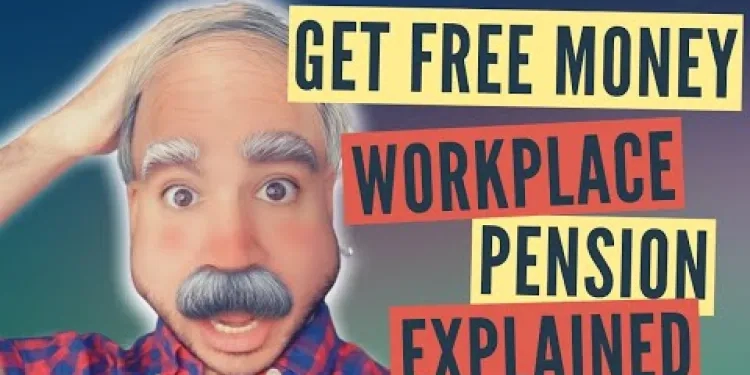
Workplace Pension UK | Pros and Cons | GET FREE MONEY FROM YOUR EMPLOYER!
Relevance: 28%
-

How do water companies fund infrastructure updates?
Relevance: 27%
-

What options are available for flexibly accessing firefighter pension benefits?
Relevance: 27%
-

State Pension UK | How much will I get? | WILL IT LAST FOREVER?!?
Relevance: 27%
-

Are firefighter pension benefits adjusted for inflation?
Relevance: 27%
Introduction to Insolvency and Pension Funds
In the UK, insolvency occurs when an individual or company can no longer meet its financial obligations. This financial state can greatly impact pension funds, which often represent significant assets held for future retirement. Pension funds are carefully managed to ensure that individuals receive their expected retirement benefits, but insolvency poses risks to these funds that need to be managed.
Types of Pension Schemes
In the UK, there are primarily two types of pension schemes: defined benefit (DB) and defined contribution (DC). A DB pension provides a specific retirement payment based on salary and years of service, while a DC pension depends on the contributions made and the performance of the investments. Insolvency affects these schemes differently, with DB schemes typically being more vulnerable due to their promise of a guaranteed payout.
Impact on Defined Benefit Pension Schemes
For DB schemes, insolvency can create significant challenges. As these schemes promise specific payouts, the sponsoring employer's financial instability can jeopardize the ability to meet these obligations. In the event of insolvency, there is a risk that the pension scheme might not have enough funds to cover its commitments. This is where the Pension Protection Fund (PPF) comes into play, serving as a safety net to ensure that pensioners receive some level of benefits even if their employer collapses.
Role of the Pension Protection Fund
The PPF was established to protect members of DB schemes whose employers become insolvent. It steps in to pay compensation to members when a DB pension scheme cannot meet its obligations. However, the PPF doesn’t guarantee full compensation for all benefits; instead, it provides compensation at a capped level, which might be lower than what was initially promised by the employer. Despite this, the presence of the PPF is crucial in providing a level of security for retirees.
Impact on Defined Contribution Pension Schemes
DC schemes are less directly affected by the insolvency of an employer, as the funds accumulated belong to the pension scheme members and are not typically part of the employer’s assets. However, insolvency can still have indirect effects, such as potential disruptions in contributions if an employer winds up unable to function, impacting the future growth of the pension pot. It is essential for members of DC schemes to stay informed and adjust their financial planning if necessary during such events.
Conclusion
Insolvency presents numerous challenges to pension funds in the UK, especially for DB schemes. The existence of the PPF provides a vital layer of protection, though not absolute, ensuring that pensioners receive some form of their retirement benefits. Understanding the impact of insolvency on pension funds is crucial for employees and pensioners to safeguard their financial future, and they should seek financial advice if they suspect that their employer is facing financial difficulties.
Introduction to Insolvency and Pension Funds
In the UK, insolvency happens when a person or a company cannot pay what they owe. This can affect pension funds, which are money saved for people to use when they stop working. Pension funds are managed carefully so people get their money when they retire. But, if a company becomes insolvent, it can put these funds at risk.
Types of Pension Schemes
There are two main types of pension plans in the UK: defined benefit (DB) and defined contribution (DC). A DB pension means you get a set amount of money when you retire, based on how much you earned and how long you worked. A DC pension depends on how much money was put in and how well the investments do. Insolvency can hurt these plans differently. DB plans are often more at risk because they promise a certain payout.
Impact on Defined Benefit Pension Schemes
DB pension plans can have big problems if insolvency happens. They promise to pay a specific amount, so if the company can't pay its bills, it may not meet these promises. If a company goes insolvent, there may not be enough money to pay everyone. This is where the Pension Protection Fund (PPF) helps. It makes sure people still get some money even if the company fails.
Role of the Pension Protection Fund
The PPF helps protect people in DB plans when their employer can't pay anymore. It gives money to members when the pension plan can’t pay out. However, the PPF might not cover the full amount promised by the employer. It offers limited compensation, but it is important because it helps keep retirees safe.
Impact on Defined Contribution Pension Schemes
DC pension plans are less affected by a company going insolvent because the money belongs to the pension members, not the company. But, there can still be problems, like stopping contributions if the company can’t operate. This can affect how much the pension can grow in the future. People in DC plans should keep informed and change their plans if they need to when such changes happen.
Conclusion
Insolvency is a big problem for pensions in the UK, especially for DB plans. The PPF provides important protection but does not cover everything. Knowing how insolvency affects pension funds is important for workers and pensioners to keep their money safe. People should get financial advice if they think their employer is in financial trouble.
Frequently Asked Questions
What is insolvency?
Insolvency is a financial state where an individual or organization is unable to meet its debt obligations as they come due.
How can company insolvency impact pension funds?
If a company becomes insolvent, it may not be able to meet its pension obligations, potentially leaving the pension fund underfunded.
What is a pension fund?
A pension fund is a pool of assets forming an independent legal entity that are used to support employer retirement plans for employees.
Are pension funds protected in the event of insolvency?
Pension funds themselves are typically protected from employer insolvency, but individual benefits may be impacted if the fund is underfunded.
What happens to defined benefit pension plans during insolvency?
Defined benefit pension plans may be at risk during insolvency, as the company is responsible for funding them sufficiently.
How does insolvency affect multi-employer pension plans?
Insolvency might affect multi-employer plans if significant contributing employers are unable to meet their funding obligations.
Can pension funds recover after a company declares insolvency?
Recovery may be possible, especially if there are insurance or governmental safety nets in place, but it often depends on the specifics of the situation.
What is the role of the Pension Benefit Guaranty Corporation (PBGC)?
The PBGC is a U.S. government agency that protects the pension benefits of participants in private-sector defined benefit plans.
How does the PBGC help in cases of insolvency?
In the event of insolvency, the PBGC can step in to ensure that pension benefits are paid, up to certain legal limits.
What happens to 401(k) plans if a company becomes insolvent?
401(k) plans are typically held in trust and are not affected by company insolvency, as they are owned by the participants.
Can individuals lose their pension entirely during company insolvency?
While it's rare to lose a pension entirely, benefits can be reduced, especially in cases where the pension is underfunded.
What steps can companies take to protect pension funds during financial distress?
Companies can ensure their pension plans are well-funded and consider insurance or government programs that offer protection.
Do unions have a role in protecting pension funds during insolvency?
Yes, unions can negotiate with companies to ensure pension benefits are protected and advocate for affected workers.
Are there legal protections for pensions in case of corporate bankruptcy?
Yes, there are laws intended to protect pensions, but the extent of protection depends on the type of pension plan and jurisdiction.
Can pension fund trustees act to protect funds during insolvency?
Trustees have fiduciary duties to act in the best interest of beneficiaries, which may involve efforts to secure or recover assets.
What is a pension deficit?
A pension deficit occurs when a pension plan does not have enough assets to cover its expected future liabilities.
How does a pension deficit relate to insolvency?
A company facing insolvency might be unable to address a pension deficit, exacerbating financial challenges for the pension fund.
What is the impact of insolvency on future pension contributions?
Future pension contributions may cease or be reduced if a company declares insolvency, depending on financial restructuring outcomes.
How might government intervention address pension fund issues during insolvency?
Governments might intervene by providing financial support or restructuring assistance to secure pension benefits during insolvency.
What should employees do if their employer declares insolvency?
Employees should review their pension plan's status and contact the plan administrator or a financial advisor for guidance.
What does insolvency mean?
Insolvency is when a person or a company does not have enough money to pay their bills or debts. It means they owe more money than they can pay.
If you are struggling to understand this, you can use pictures or videos to help. Talking to someone you trust, like a family member or a teacher, can also be helpful.
Insolvency is when a person or company does not have enough money to pay their bills.
If you need help understanding this, you can:
- Ask someone to explain the words you don't know.
- Use a dictionary to look up hard words.
- Use a text-to-speech tool to have the text read aloud to you.
What happens to pension money if a company runs out of money?
If a company has no money, it might not be able to pay for pensions.
Pensions are savings for when you stop working. If the company cannot pay, you might get less money than expected.
Here are some tips:
- Ask questions if you do not understand.
- Use pictures or diagrams to help explain.
If a company runs out of money, it might not be able to pay what it promised for people's pensions. This means there might not be enough money in the pension fund.
What is a pension fund?
A pension fund is a big pot of money saved for when people stop working.
People and their bosses put money in the pot while they are working. This money grows over time.
When people retire, they use this money to pay for things they need.
You can think of a pension fund like a savings account for your future.
If you want to learn more, try using simple videos or asking someone to help explain.
A pension fund is a big pot of money. It is used to help people when they stop working and retire. This money comes from the jobs they had. It is kept safe, like in a bank, so people will have money when they are older.
Are Pension Funds Safe if a Company Goes Bankrupt?
If a company runs out of money and closes, your pension might still be safe. There are special rules and protections to help keep pension money safe.
Here’s what helps:
- There are laws to protect some pensions.
- Some pensions have insurance, like a safety net.
If you are worried about your pension, you can:
- Talk to someone who knows about pensions, like a financial advisor.
- Call a pension help line for advice.
Pension funds stay safe even if a company runs out of money. But if there isn't enough money in the fund, people's pensions might be smaller.
What happens to a pension plan if a company runs out of money?
A pension plan is money saved for when you stop working.
If a company runs out of money (called "insolvency"), it might not be able to pay the money promised in the pension plan.
Here is what might happen:
- The government might help to pay some of the pension money.
- You might get less money than expected.
If you have questions, you can talk to a pension advisor or use online tools to help understand more.
If a company goes broke, their money to pay pensions might be in trouble. The company must put enough money into the pension plan.
What happens to pension plans when a company can't pay its bills?
If a big company in a shared money plan can't pay what it owes, it might cause problems for the plan.
Can pension money be safe if a company goes bankrupt?
Sometimes companies can run out of money and go bankrupt. This is called insolvency.
If this happens, people might wonder if their pension money is safe.
Here are some simple tips to understand what might happen:
- When a company is in trouble, they might still need to pay some of the pension money.
- In some places, there are special rules to help protect pension money.
- Sometimes other companies take over and help with the pension.
If you're worried about your pension, you can:
- Ask someone you trust to help you understand what's happening.
- Use pictures or diagrams to see how things work.
Getting better might be possible, especially if there is help from insurance or government programs. But, it often depends on what happened exactly.
What does the Pension Benefit Guaranty Corporation (PBGC) do?
The PBGC is like a safety net for some retirement plans. It helps make sure people still get their pensions if the company can’t pay anymore.
Here are some ways to help understand:
- Break the words into smaller parts.
- Look at pictures that explain what the PBGC does.
- Ask someone to read it with you.
The PBGC is a part of the U.S. government. It helps people keep their pension money safe. This is for people who have certain types of pension plans from their jobs.
What does the PBGC do when companies can't pay their pensions?
The PBGC is a group that helps people get their pension money if their company can't pay. They make sure people still get some money even if the company is in trouble.
Support tools: - Clear charts or pictures to show how the PBGC works. - Talking with someone who knows about pensions can help understand better. - Use simple words or audio to explain the PBGC.
If a company can't pay its bills and goes out of business, there is a group called the PBGC that helps. They make sure that people still get their pension money, up to a certain amount that the law allows.
What happens to 401(k) plans if a company runs out of money?
A 401(k) is a type of savings plan for when you stop working. It is kept safe and not affected if the company you work for runs out of money. This is because the money belongs to you.
Can people lose all their pension money if a company goes bankrupt?
When a company goes bankrupt, it means it can't pay what it owes.
If you are worried about your pension, here are some things you can do:
- Ask someone for help to understand your pension papers.
- Look for a support group or a chat online.
- Check if there are any safety rules to keep your pension safe.
- Consider talking to a pension expert for advice.
It doesn't often happen that people lose a pension completely. But the money you get from your pension might be less if there isn’t enough money in it.
How can companies keep pension money safe when money is tight?
Here are some steps companies can take:
- Make Regular Payments: Always put money into the pension fund, even when times are tough.
- Set Up a Backup Plan: Have a backup plan to cover the pension fund if needed.
- Talk to Experts: Ask money experts for advice.
- Watch the Money: Keep a close eye on how the pension money is being used.
Companies can also:
- Use tools like budgeting apps to manage money.
- Hold meetings to make sure everyone works together.
Companies can make sure they have enough money for their pension plans. They can also look at insurance or government programs that help keep their money safe.
Can unions help keep pension money safe if a company runs out of money?
Yes, unions can talk to companies to keep pensions safe and help workers who need it.
Are there rules to keep pensions safe if a company goes bankrupt?
If a company runs out of money, there are rules to help protect your pension.
You can ask these people for help:
- Money advice services
- Pension helplines
They can explain what to do and how to keep your pension safe.
Yes, there are rules to keep pensions safe. How much they help depends on the kind of pension you have and where you live.
Can people who take care of pension money help when a company has no money?
If a company runs out of money, it is called insolvency. The people who take care of pension money are called trustees. Trustees make sure pension money is safe.
When a company is insolvent, trustees can help protect the money saved for pensions. Here are some ways they might do that:
- They check the rules to see what steps they can take.
- They work with others to find the best way to protect the money.
- They might talk to experts who know about money and rules.
For help learning more, you can:
- Use apps or tools that read the text out loud.
- Ask a friend or family member to explain the text to you.
- Use a dictionary to understand hard words.
Trustees must act in a way that helps the people they are looking after. This means they might need to keep or find things that belong to these people.
What is a pension deficit?
A pension is money people save for when they stop working. A pension deficit is when there is not enough money saved. This means there might not be enough to pay everyone.
To understand better, you can:
- Use pictures or drawings to help explain.
- Ask someone to tell you a story about it.
- Watch a video about how people save for the future.
A pension deficit happens when there is not enough money in a pension plan to pay for everything it needs to in the future.
Some ways to understand this better are:
- Break down the information into smaller parts.
- Use pictures to help explain ideas.
- Ask questions if something is not clear.
What happens if a pension plan doesn't have enough money?
If a company is running out of money, it might not be able to put more money into a pension fund. This can create more money problems for the people who depend on that pension fund.
Here are some tools to help understand this topic better: - **Use a dictionary**: Look up any words you don't know. - **Ask for help**: Talk to someone you trust who can explain things in a simple way. - **Break it down**: Read one sentence at a time and think about what it means.What happens to your pension if a company runs out of money?
If a company runs out of money and closes, they might stop putting money into your pension. They could also put in less money. It depends on how they try to fix their money problems.
How can the government help when pension funds have money problems?
Pension funds are savings for people when they stop working. Sometimes, these funds run out of money. This is called insolvency.
The government can step in and help. This means they can offer support to fix the problems. They might give money or make new rules to protect people's savings.
Using pictures or charts can help understand how pensions work. You can also ask someone to explain it to you if it feels tricky.
When companies run out of money, they might not be able to pay the pensions they promised. Governments can help by giving money or helping fix the problem, so the promised pension money is safe.
What to Do If Your Company Runs Out of Money
If your company has no money left, it is called "insolvency." Here is what you can do:
1. Talk to Your Boss: Ask them what is happening and how it affects you.
2. Read Your Work Contract: It might say what to do if the company has no money.
3. Contact a Union or Advisor: They can help you understand your rights and what to do next.
4. Keep Records: Write down any work hours and money you are owed.
Support Tools:
- Simple Language Guides: Use guides that explain difficult words.
- Help from Others: Ask someone you trust to explain things.
Workers should check their pension plan. They should talk to the person in charge of the plan or a money helper for advice.
Tools that help you understand money can be useful, like simple guides or apps for learning about saving and pensions.
Useful Links
This website offers general information and is not a substitute for professional advice.
Always seek guidance from qualified professionals.
If you have any medical concerns or need urgent help, contact a healthcare professional or emergency services immediately.
Some of this content was generated with AI assistance. We’ve done our best to keep it accurate, helpful, and human-friendly.
- Ergsy carfully checks the information in the videos we provide here.
- Videos shown by Youtube after a video has completed, have NOT been reviewed by ERGSY.
- To view, click the arrow in centre of video.
- Most of the videos you find here will have subtitles and/or closed captions available.
- You may need to turn these on, and choose your preferred language.
- Go to the video you'd like to watch.
- If closed captions (CC) are available, settings will be visible on the bottom right of the video player.
- To turn on Captions, click settings .
- To turn off Captions, click settings again.
More Items From Ergsy search
-

How does insolvency impact pension funds?
Relevance: 100%
-

What is the Pension Protection Fund?
Relevance: 74%
-

Why do pension funds go bust?
Relevance: 60%
-

What can pension fund members do if their fund is at risk of failing?
Relevance: 55%
-

Can pensioners lose all their money if a pension provider fails?
Relevance: 55%
-

Can I get pension advice directly from pension fund providers?
Relevance: 50%
-

What role does government regulation play in protecting pensions?
Relevance: 50%
-

Are defined contribution pensions protected if the provider goes bust?
Relevance: 49%
-

What Happens When Pensions Go Bust! | Pension System Collapse UK
Relevance: 48%
-

Who is eligible for compensation from the PPF?
Relevance: 45%
-

Can pension scheme members influence how their pension is managed?
Relevance: 38%
-

What is the impact on pensioners if a pension system collapses?
Relevance: 34%
-

Do firefighters have to contribute to their pension schemes?
Relevance: 34%
-

What is a defined contribution pension scheme?
Relevance: 34%
-

What is a defined benefit pension scheme?
Relevance: 33%
-

Where can I get reliable pensions advice?
Relevance: 32%
-

Police Pension Explained
Relevance: 31%
-

Pension UK | SIPPs Explained | Who Are The Best Providers
Relevance: 31%
-

Are firefighter pension benefits taxable?
Relevance: 30%
-

Are government pension advisory services trustworthy?
Relevance: 30%
-

Is the Pension Wise service reliable for pension advice?
Relevance: 30%
-

Do pensioners get a free TV license?
Relevance: 29%
-

When will the state pension age increase to 67?
Relevance: 29%
-

How are Postcode Lottery funds allocated?
Relevance: 29%
-

What if the estate does not have enough assets to pay all tax debts?
Relevance: 29%
-

Can I defer my basic State Pension?
Relevance: 28%
-

What is the basic pension in the UK?
Relevance: 28%
-

Is there a difference between the basic State Pension and the new State Pension?
Relevance: 28%
-

Will pension contribution allowances be affected in 2026?
Relevance: 28%
-

Pension rights for Firefighters in the UK
Relevance: 28%
-

NHS Pensions | All you need to know
Relevance: 28%
-

What are the risks of self-managing my pension without advice?
Relevance: 28%
-

Who provides the funding for free school meals in the UK?
Relevance: 28%
-

Are pensioners eligible for the £500 cost of living payment?
Relevance: 28%
-

How do funding and resources affect SEND support?
Relevance: 28%
-

Workplace Pension UK | Pros and Cons | GET FREE MONEY FROM YOUR EMPLOYER!
Relevance: 28%
-

How do water companies fund infrastructure updates?
Relevance: 27%
-

What options are available for flexibly accessing firefighter pension benefits?
Relevance: 27%
-

State Pension UK | How much will I get? | WILL IT LAST FOREVER?!?
Relevance: 27%
-

Are firefighter pension benefits adjusted for inflation?
Relevance: 27%


